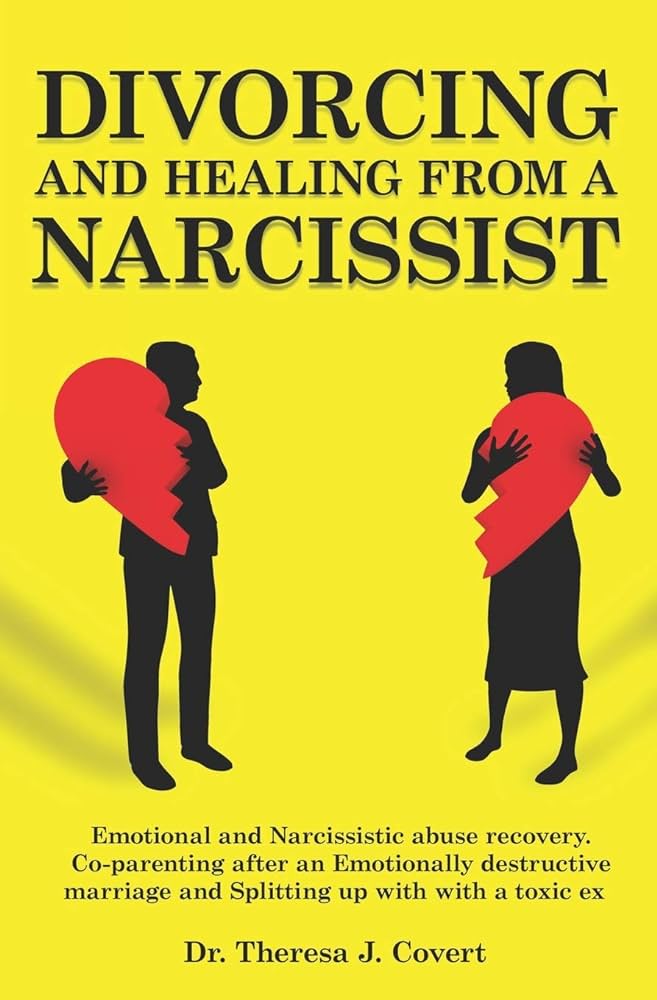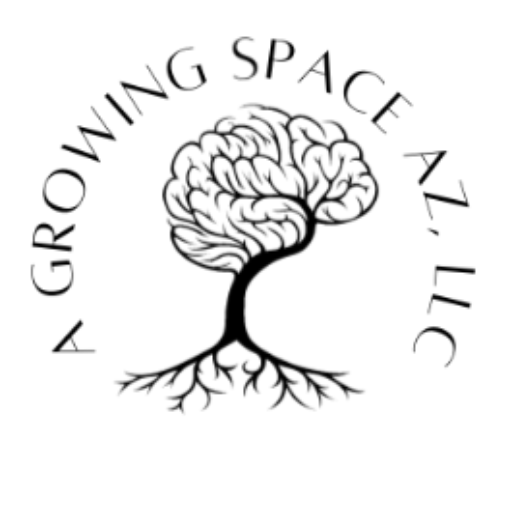Hey there, fellow seekers of love and fulfillment! It’s your favorite neighborhood Marriage Coach back again, excited to delve into a topic that’s been close to my heart: narcissism in marriages.
I’ve been on quite the marriage journey myself, not just as a successful Marriage Coach, but also as a husband to my amazing soulmate, Camea, and a proud dad to our wonderful daughter. Through the highs and lows, twists and turns, of navigating the complex landscape of marriage, I’ve witnessed firsthand the challenges many couples face.
The idea to explore narcissism in marriages struck me deeply. It’s a topic that often lurks in the shadows, yet its effects can be profoundly felt in relationships. And witnessing the struggles of couples grappling with narcissism’s effects has been eye-opening. I can’t help but feel a sense of responsibility—I wish I had written about this sooner. Today, I’m inspired to grab my pen and paper and share my thoughts on the subject.
But first, let’s lay the groundwork for our exploration…
What Is Narcissism in Marriages? The Correct Definition
Before I answer that question, let’s address a common misconception. Narcissism isn’t as prevalent as it might seem, and often, the term is thrown around loosely creating a haze of confusion.

Today, we’ll sift through the misconceptions, peeling back the layers to understand the true nature of narcissistic behaviors in marriages.
So how do we define it? What exactly is narcissism?
Good question!
Narcissism in a marriage is when a partner prioritizes their own needs, desires, and emotions over those of their spouse. This behavior manifests in a myriad of ways, each leaving its distinct imprint on the relationship landscape. It’s more than just a buzzword; it’s a behavioral pattern that can cast shadows on the sanctity of relationships. At its core, narcissism often involves an exaggerated sense of self-importance, an insatiable need for admiration, and a lack of genuine empathy for a partner’s emotions. These characteristics can manifest as:
- Grandiosity: A grandiose (bold, showy) sense of self, coupled with an expectation of special treatment.
- Manipulation: The use of charm and manipulation to achieve personal goals, often at the expense of the partner’s well-being.
- Lack of Empathy: Difficulty understanding or sharing in the feelings of the spouse, leading to emotional disconnection.
Narcissism in a marriage is when a partner prioritizes their own needs, desires, and emotions over those of their spouse.
– Francis Peca
Recognizing narcissistic behavior requires a keen eye for certain signs and red flags. These indicators, often subtle at first, can escalate over time, impacting the health of the marriage. Keep an eye out for:
- Excessive Need for Validation: Constantly seeking admiration and validation to feed their ego.
- Controlling Behavior: A desire to control every aspect of your life, from social interactions to personal choices.
- Lack of Accountability: A consistent refusal to take responsibility for mistakes or shortcomings, often deflecting blame onto the partner.
However, it’s crucial to navigate the fine line between genuine narcissism and moments of temporary self-centeredness that we all experience. Genuine narcissism tends to be a pervasive, long-term pattern, while temporary self-centeredness may arise in response to stress, insecurity, or unmet needs. To distinguish between the two:
- Duration and Consistency: Narcissistic behaviors persist consistently over time, whereas temporary self-centeredness is often situational and temporary.
- Impact on the Relationship: Genuine narcissism significantly impairs the relationship, creating a toxic dynamic, while temporary self-centeredness can be addressed through open communication and understanding.
As we explore this topic further, I would like you to keep these distinctions in mind. They will help us as we discuss more on how we can identify narcissistic behaviors and remedies.
How Narcissistic Behaviors Contribute to Hurt and Pain in Relationships:
Ever felt stuck in a never-ending cycle of disagreements and hurtful exchanges with your partner? Does your partner exhibit any signs of constant need for validation, manipulation games, and an emotional disconnect that leaves scars?

These behaviors contribute to a steady erosion of trust and emotional safety, leaving partners feeling hurt and questioning the very foundation of your union. That’s the negative loop effect brought on by narcissistic behaviors. It’s a toxic dance where one partner’s self-centered actions trigger defensive responses from the other, creating a destructive loop.
The consequences?
A marriage where communication breaks down, intimacy withers away, and the once vibrant connection fades into a shadow of its former self. It’s a heavy toll on the overall health of the relationship, leaving both partners longing for the love and understanding they once shared.
In a narcissistic marriage, communication easily breaks down, intimacy withers away, and the once vibrant connection fades into a shadow of its former self
– Francis Peca
Navigating the waters of a relationship tainted by narcissistic behaviors can be like sailing through stormy seas. The impact is real, hitting at the very core of what a marriage should be – a sanctuary of love and support.
How to Deal With Narcissism
1. Educate Yourself on the Narcissistic Personality Disorder:
Knowledge is a powerful tool, and when it comes to successfully dealing with a narcissistic personality, understanding Narcissistic Personality Disorder (NPD) is crucial.
On that note, I wanted to also mention that here at A Growing Space, we have several resources that support families in their growth and healing journeys – including regular short podcasts that help you identify NPD in marriages. We encourage you to take advantage of these free resources so you can equip yourself with valuable insights that go beyond surface-level information.
We also recommend resources by other experts in the field. For example, here is a great read that tackles the issue further in a kind, loving tone. Its a highly rated book that helps people identify and understand the cause and effect of a complicated long term relationship or marriage with a narcissist.

Moving on…
One of the most significant benefits of educating yourself about NPD is the ability to protect yourself from the emotional distress often associated with being in a relationship with someone who exhibits narcissistic traits. Understanding the symptoms and complexities of NPD serves as a shield, helping you decipher between personal attacks and manifestations of the disorder itself.
My wife Camea (the Complex Trauma specialist) explains this beautifully. She usually says that “the behaviors exhibited by individuals with NPD are rooted in their mental health condition rather than a reflection of your worth.”
This statement can help you depersonalize hurtful actions and statements. Think about it again for a second – the behaviors exhibited by individuals with NPD are rooted in their mental health condition rather than a reflection of your worth. This statement helps you learn that instead of internalizing these behaviors, you can recognize them as reflections of the disorder rather than reflections of your worth.
Furthermore, this understanding fosters empathy. It doesn’t excuse harmful behavior, but it does provide a lens through which you can view your partner’s actions with a degree of compassion.
In essence, education becomes your ally, offering a solid foundation for self-preservation, empathy, and informed decision-making in the challenging terrain of a relationship with a narcissistic personality. But that is not all you can do in order to deal with narcissism. Next, let`s look at a simple theory you can take advantage of.
2. Use The Double Down Theory
Now that we’ve navigated the stormy seas of narcissism’s impact, let’s turn our attention to a beacon of hope – the Double Down Theory.
Have you heard about this theory before or this is the first time you`re hearing about it? Don`t worry, its nothing too complex. Its not some high-stakes gamble either; Rather, it’s a transformative approach to rebuilding and fortifying the foundations of your marriage. Picture it as a warm embrace that says, “We’re in this together, no matter what.”
It’s all about extending a hand of kindness, offering a listening ear, and being fully present for your partner, even when the walls of narcissism seem insurmountable. By embracing vulnerability and leading with love, we become catalysts for change, igniting a spark that has the power to transform even the most challenging marriages.

I will explain it further using an example:
Imagine if love were a currency, and with every exchange, its value multiplied. That’s the essence of the Double Down Theory – a revolutionary approach to nurturing love and connection in marriages. At its core, it’s about amplifying the power of love through intentional acts of kindness, empathy, and understanding. By embracing this concept, couples can transcend the barriers of narcissism and cultivate a relationship grounded in authenticity and fulfillment.
But love, much like a flame, thrives on reciprocity. It’s not enough to give love; we must also receive it in return. And here lies the magic of reciprocation – the act of doubling the love to build a positive relationship loop. As we receive love from our partner, we amplify it, infusing our relationship with warmth, acceptance, and mutual respect.
Love the Double Down Theory? I bet you do – It’s such a beautiful dance of give and take, where each partner’s contributions fuel the fire of love, creating a bond that withstands the tests of time!
3. Set Clear Boundaries:
Establishing and enforcing clear boundaries is a fundamental step in navigating relationships tainted by narcissistic behaviors. It’s not just about drawing lines in the sand; it’s about creating a roadmap for mutual respect and emotional well-being.

Begin by introspectively identifying your needs and expectations within the relationship. What are the non-negotiables that contribute to your sense of security and happiness? Once these are clear in your mind, communicate them openly and assertively to your partner. This isn’t about issuing ultimatums but rather expressing your desires with clarity and sincerity.
Here are some example statements that illustrate how you can communicate boundaries:
- Emotional Respect: Statement: “I value open communication and emotional support. It’s important to me that we discuss our feelings without judgment. I won’t tolerate dismissive or demeaning comments about my emotions.”
- Personal Space: Statement: “Everyone needs some personal space and time for individual pursuits. I’d appreciate it if we can respect each other’s need for solitude without feeling neglected or offended.”
- Constructive Communication: Statement: “Let’s commit to communicating in a constructive manner. If there’s an issue, we can discuss it calmly and find solutions together. I won’t engage in arguments that involve personal attacks or blame-shifting.”
- Shared Responsibilities: Statement: “I believe in shared responsibilities within our relationship. It’s important for both of us to contribute and support each other. I won’t accept a dynamic where one person consistently takes on a disproportionate share of responsibilities.”
- Healthy Independence: Statement: “Maintaining individual identities is crucial for a healthy relationship. I encourage both of us to pursue personal interests and friendships outside our partnership. I won’t tolerate attempts to control or dictate each other’s social lives.”
- Respectful Disagreements: Statement: “Disagreements are inevitable, but I believe we can navigate them respectfully. I won’t engage in conversations that involve insults, name-calling, or belittling. Let’s find ways to express differing opinions without harming each other.”
Creating this framework isn’t just for your benefit; it also establishes a healthier dynamic within the relationship. It communicates to your partner that certain behaviors are incompatible with the respect and understanding required for a successful partnership. This clarity can act as a catalyst for change, prompting self-reflection and potentially leading to a more positive and balanced relationship dynamic.
In essence, setting clear boundaries is an act of self-empowerment and self-respect. It’s a declaration that you deserve to be treated with dignity and kindness. As you embark on this journey, remember that boundaries are not walls but bridges – bridges that connect you to a relationship grounded in mutual respect and shared understanding.
4. Foster Other Healthy Relationships:
Building a robust support network beyond the confines of your relationship is like planting seeds of resilience and understanding. While dealing with narcissistic behaviors, leaning on friends, family, or a therapist becomes not just beneficial but crucial for your emotional well-being.

Here’s how you can cultivate a supportive network to bolster your emotional resilience and navigate the challenges posed by narcissism:
- Friendships: Surround yourself with friends who uplift and inspire you. Cultivate relationships built on trust, empathy, and mutual respect. Engage in meaningful conversations, share laughter, and lean on each other during times of need. These friendships serve as pillars of strength, offering solace and understanding when faced with the complexities of a narcissistic relationship.
- Family Bonds: Lean on the unwavering support of family members who have your best interests at heart. Whether it’s a sibling, parent, or extended relative, family bonds can provide a sense of belonging and unconditional love. Share your experiences openly, seek guidance from those who know you best, and find comfort in the familiarity of familial ties.
- Therapeutic Support: Seeking guidance from a therapist or marriage coach like myself can offer invaluable insights and coping strategies. A trained professional provides a safe and non-judgmental space to explore your thoughts and emotions, offering perspective and guidance tailored to your unique circumstances. Through therapy, you can gain clarity, develop resilience, and embark on a journey of self-discovery and healing.
I would love to see you create a supportive ecosystem that nurtures your emotional well-being. Your mental health is that important! These connections serve as anchors, grounding you in times of uncertainty and offering a beacon of hope amidst the storm. Remember, you are not alone on this journey. Embrace the love and support of your network, and together, you can weather the challenges and emerge stronger, wiser, and more resilient.
Conclusion
As we wrap up, let’s take a moment to recap the key insights we’ve learned so far. We have discussed so much – from understanding narcissistic behaviors and their impact on marital happiness to the importance of tools such as education, boundary-setting, fostering healthy connections. Each lesson we have learned is a building block toward healthier, more authentic connections.
And whilst we have discussed several ideas, for me, the Double Down approach emerges as the biggest beacon of hope. By taking the risk to give love and reciprocating with double the love, we create a positive relationship loop that has the potential to transform marriages. Remember, the Double Down approach isn’t a mere theory; it’s a practical guide to infuse marriages with warmth, understanding, and a genuine connection that stands the test of time.
It’s time to embark on your own journey, armed with insights, courage, and a commitment to authentic connection. Break free from the negative loops, set boundaries that honor your worth, and surround yourself with a network that uplifts you. The potential for lasting love exists, and it begins with the choices you make today.
May your journey beyond narcissism be filled with self-love, understanding, and the fulfillment that comes from building a relationship grounded in authenticity.
Feel free to talk to me if you have any questions.






